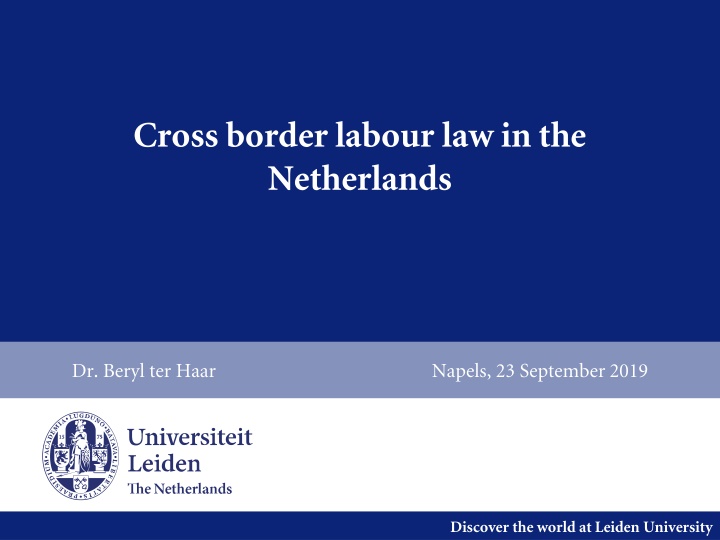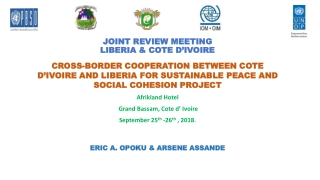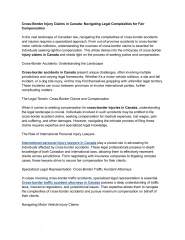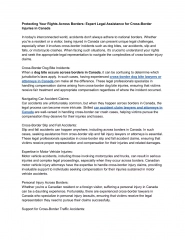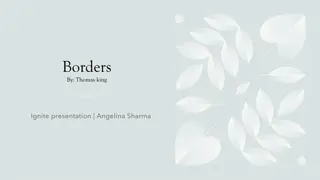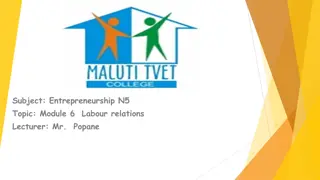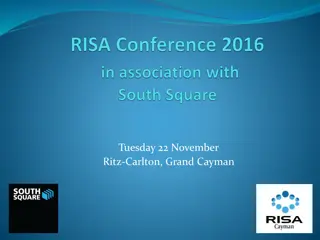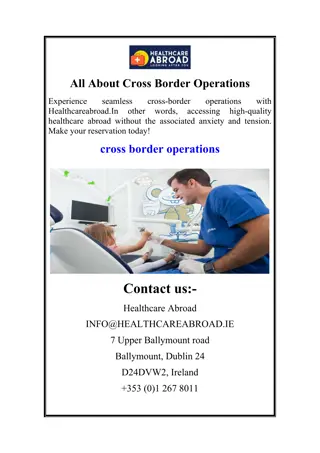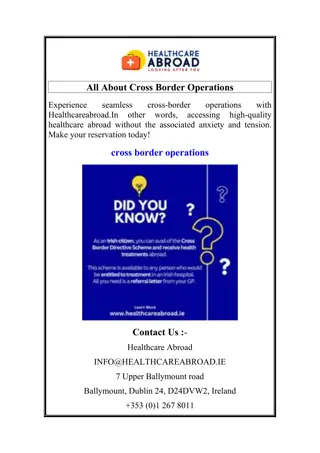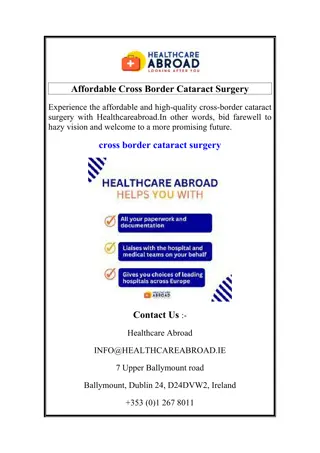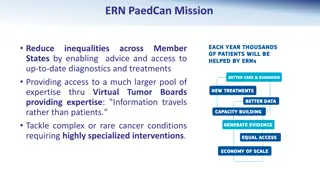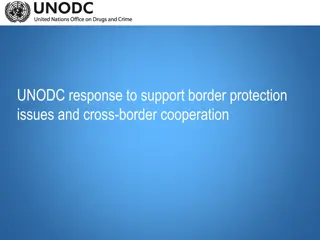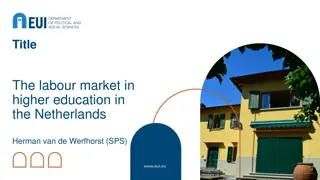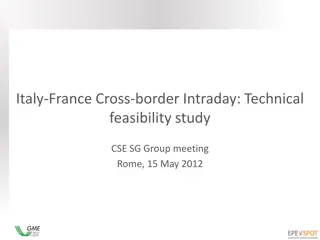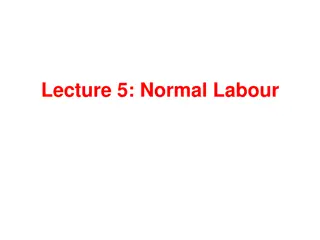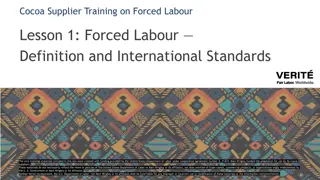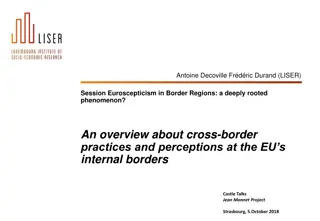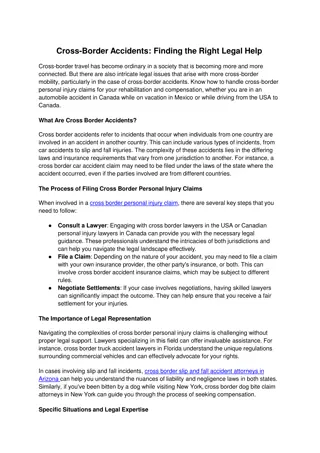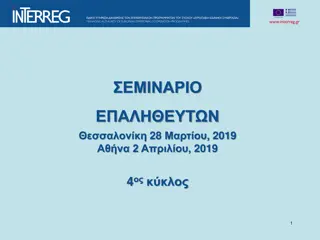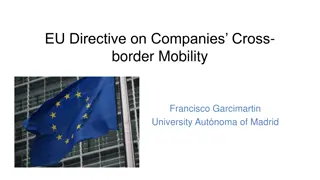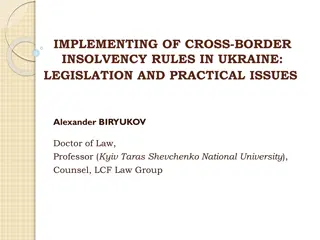Cross-border Labour Law in the Netherlands
This text discusses Dr. Beryl ter Haar's presentation on cross-border labour law in the Netherlands, held in Napels on 23 September 2019. It emphasizes exploring the legal aspects of international employment and labor regulations. The event was hosted by Leiden University, facilitating a deeper understanding of global workforce dynamics and legal frameworks.
Download Presentation

Please find below an Image/Link to download the presentation.
The content on the website is provided AS IS for your information and personal use only. It may not be sold, licensed, or shared on other websites without obtaining consent from the author.If you encounter any issues during the download, it is possible that the publisher has removed the file from their server.
You are allowed to download the files provided on this website for personal or commercial use, subject to the condition that they are used lawfully. All files are the property of their respective owners.
The content on the website is provided AS IS for your information and personal use only. It may not be sold, licensed, or shared on other websites without obtaining consent from the author.
E N D
Presentation Transcript
Cross border labour law in the Netherlands Dr. Beryl ter Haar Napels, 23 September 2019 Discover the world at Leiden University
Cross border labour law in the Netherlands Three parts Part I Implementation legislation in the Netherlands Part II Minimum legislation - Art. 8 and 9 Rome I - Recast posting of workers directive Part III Topical issues: - Transnational road transport - Construction sector - Agricultural sector and meat industry Discover the world at Leiden University
Part I Implementation legislation Applicable EU law no transposition required - Primary EU law provisions: Articles 18, 45 TFEU - Secondary EU law provisions: Regulation 492/2011 (Free movement) Applicable EU law that required transposition - Directive 2014/54 EU (facilitating measures) - Directive 2004/38 (Citizenship) - Directive 2009/52 (measures against employers of illegally staying third-country nationals) - Directive 2009/50 (blue card for highly qualified employment) - Directive 96/71 (posting of workers) - Directive 2014/67 (enforcement) - Directive 2018/957 (recast posting of workers) Discover the world at Leiden University
Part I Implementation legislation Dutch legislation Scattered; not one source Sometimes hardly any implementation is needed because the norms in the directive are already provided for. E.g. directive 2014/54 Most of the implementation legislation concerns the posting of workers. Relevant sources of Dutch law include: Civil Code (BW) Act on working conditions of posted workers in the EU (WagaEU) Art. 46 ABU CLA (temporary agency workers) Act extension CLA (esp. Art. 2, par. 6) Act allocation workers by intermediaries (Waadi) Code on Civil procedural law (Rv) Act on minimum wage Discover the world at Leiden University
Part II Minimum legislation art. 8 and 9 Rome I Context free movement of workers Issue in (Dutch) legal doctrine: when free movement and when posting? 1. when duration of posting is vague (nbmore clear in recast directive posting of workers 12 months max) 2. when posting is hiring out of personnel CJEU Case Vicoplus Relevance distinction: applicable rules to determine which national legislation needs to be applied Other issues of debate: what is falls within the scope of art. 9 Rome I the core rights of the posting of workers directive per definition? What else? Discover the world at Leiden University
Part II Minimum legislation art. 8 and 9 Rome I Context free movement of workers In general when Dutch law applies complete equal treatment In general when choice is made for another legal system, i.e. not the Netherlands: 1. All minimum norms esp. act on minimum wage; minimum annual leave allowance 2. Act on working conditions 3. Non-discrimination legislation 4. CLAs with extension Discover the world at Leiden University
Part II Minimum legislation recast posting of workers directive The Netherlands played in active role in the recast of the directive and voted in favour of it Improves on distinction free movement and posting by duration (12 months) Changes required in several laws: WagaEU; minimum wage and minimum annual leave allowance; Act extension CLAs; Waadi; and Rv Discussion/expectation Dutch government Netherlands is recipient country rather than sending country; Social protection of posted workers will improve since they will more often (sooner) be entitled to more (often better) working circumstances and conditions Recipients of posted workers that re-post the workers have to report this Little impact for the Dutch government and for the environment Discover the world at Leiden University
Part III Topical issues 1. transnational road transport The Netherlands is a transport country Rotterdam harbour / Schiphol Issues: Many bogus-constructions to disguise direct employment relationships as posted workers (hiring out) Difficult to identify habitual working country Cases Dutch courts Hungarian truck drivers Dutch courts FNV / De Mooij (Poland) CJEU Vaditrans Problem recast directive excludes transport; mobility package seems to going to rely on Rome I rather than a core of rights. Discover the world at Leiden University
Part III Topical issues 2. Construction sector The Netherlands is recipient country of many construction workers from esp. Poland NB the UK s Polish plumber situation also applies to the Netherlands Problems - When self employed exploited as they don t know what regular Dutch prices are (often in sub-contracting constructions) - Hyper mobile workers Case of Eemshaven - ? How to organise these workers? It seems that the recast directive will do nothing to solve the latter situation. Rome I seems also not helpful; issue of enforcement role labour inspectorate / ELA? Discover the world at Leiden University
Part III Topical issues 3. Agricultural sector and meat industry One of the fields in which the Netherlands is relying on posted workers and (false) self-employed cross border workers. Two main issues: 1. working conditions 2. living conditions (accompanied with societal annoyance) Re second the recast directive may make a difference Discover the world at Leiden University
